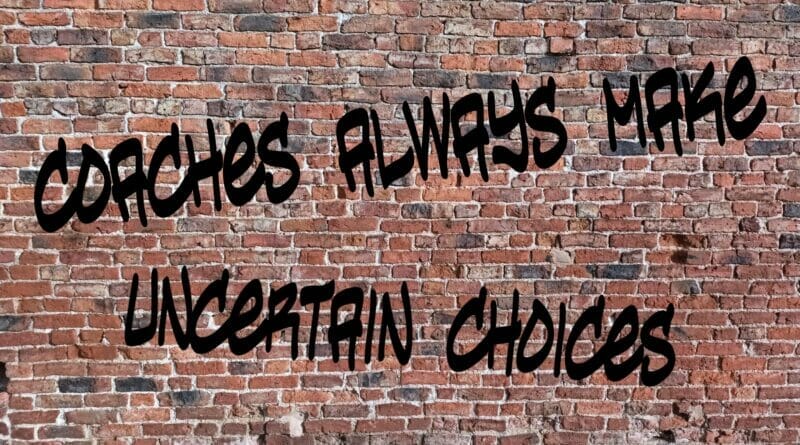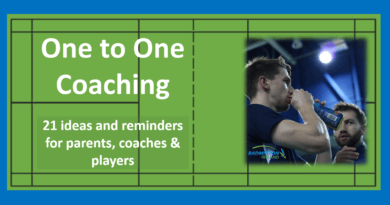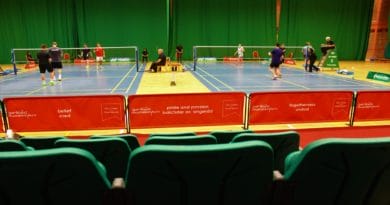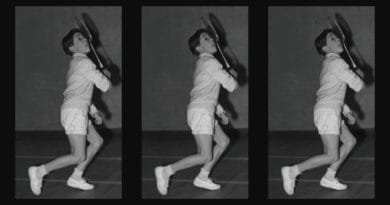Coaching is a series of uncertain choices
Players have different requirements & demands, that keep changing!
How can you ever be certain that what you do will work?
Have you learned the skill (art) of the ‘best guess’
Planning is important but
when the voice inside you head suggests something different what do you do?
The conversation that started it all
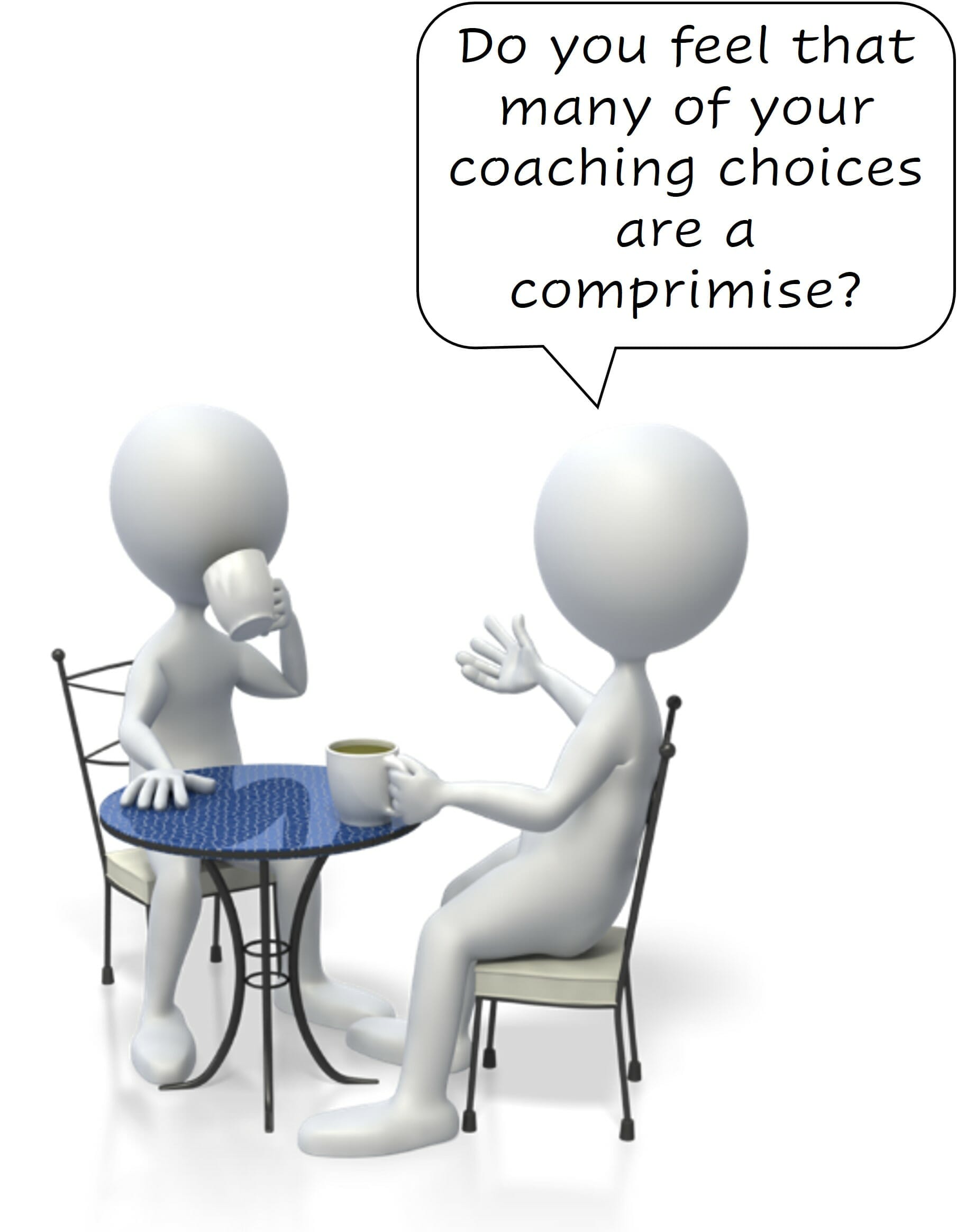 During an afternoon coffee with another coach, I asked if they found it challenging to select what to coach and when to coach it during their badminton coaching.
During an afternoon coffee with another coach, I asked if they found it challenging to select what to coach and when to coach it during their badminton coaching.
How much did they feel that any planning was a best ‘a guess’ (based on experience).
Also, did the decisions and choices during the session often felt like compromises between what they wanted to achieve (planned) compared to what the performer needed and was capable of in the session? Could they plan for those thoughts?
We chatted for about an hour about all the choices we made while we were coaching.
Choices before the session, choices during the session and also those instant almost unplanned coaching actions. Unplanned yes, yet we both agreed that they felt planned as we knew (hoped) that they had the effect we wanted.
I described these thoughts as an ongoing discussion (often mini-arguments) in my head.
Ok, my coaching buddy didn’t see them as arguments, that was just me. However, they did question where their ‘best guesses’ came from.
We wanted this skill to be taught in coaching courses. The skill to plan and also to adapt with a ‘guess’ all because of a coaching ‘feeling’. Who was helping coaches explore what concepts, strategies and thought processes to use?
The sad thing was that neither of us had ever been taught or introduced to this concept on an official Coach education qualification. We both agreed that we were always comparing one coaching option or another in our minds before acting. So why was it not part of a qualification? 🙁
You will always have to leave some choices, option in your mind
Are you skilled at deciding which is the best of your ‘uncertain cchoices’ ?
We discussed
- How many times in a session we moved away from the original plan – but how we still always ‘planned’
- How often do we make the ‘correct’ coaching decision – or were we ‘guessing’, then reflecting, then adapting?
- What caused us to make that change – the triggers, the observations, the guesses, and many more
- The inner coach’s voice in our heads – what was it saying, how loud was it, how it developed, and did we trust it?
- Did we fear the compromises and changes we made – who policed our actions and checked how valid they were (did they work?)
- How we felt when we made an uncertain choice – what we immediately looked for as reassurance (that’s me!)
- What we’d been taught and encouraged to do on coach education courses. However, nowadays we act very differently. Could that original advice be amended?
- Where did those instant’ unplanned coaching actions come from – that was a tough question!
We agreed that we often made uncertain choices in our sessions
and that it was tough, almost impossible to stick to our prepared plans
but if things weren’t effective, change was required
We had to agree on something
After an hour of coffee and cake, we decided that we had to agree on something. Surely all coaching isn’t just a series of guesses, compromises and uncertain choices.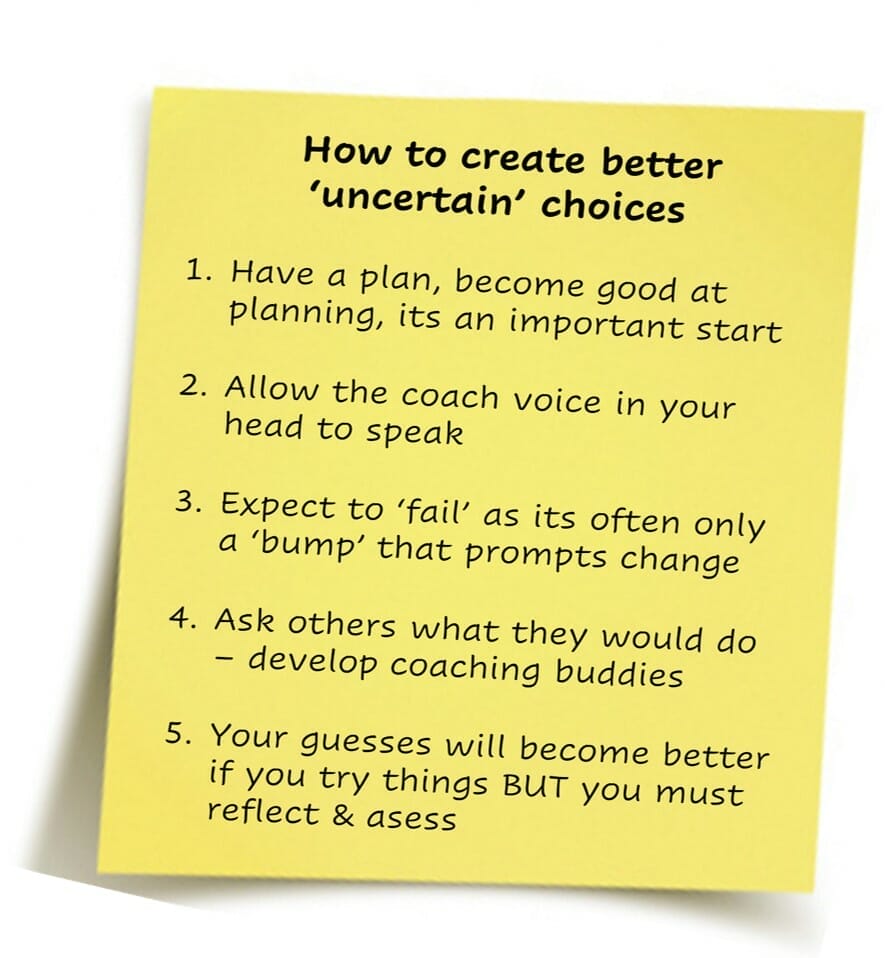
These statements were the best we could come up with.
If you have others or disagree strongly, let me know. I’d welcome your thoughts
Our underlying thoughts were that the flexibility (of thought & actions) required by coaches needed to be recognised in Coach Education, and it’s currently NOT in our opinion.
- You need a blueprint, an overall plan to follow, to act as a guide – but there must be many mini-variations within the plan (how many different choices can you be comfortable with?)
- There are many things you could change in the practice – but how do you develop the skills to decide and to feel comfortable with uncertain choices, or ‘educated guesses’ as we call them 🙂
- Be prepared to make the wrong choice – Don’t worry, expect to adapt and to ‘fail’, although often it’s only you that knows you are failing!! 🙂
- It’s ok to change your mind during a lesson – it’s your next decision that counts whatever it is, why not trust it?
- Ask someone standing next to you – develop a network and work with them. Actively make ‘instant’ coaching decisions with them and reflect on any differences.
- You can’t always coach what you want – sometimes you have to hold back and improve something else before addressing the aspects you wanted to initially coach. Do you know what they are?
Do you see compromises in the statements above?
How many are part of any coach education systems?
– – – – – – – – – – – – – – – –
Questions for you and a coaching friend
Ask a friend how many times they make an uncertain choice in their badminton coaching sessions.
Do they have a voice in their head constantly suggesting options and variations and if they do, can they trust it?
I wonder if you see your coaching decisions as a series of informed compromises or best guesses.
How comfortable are you with these questions?
– – – – – – – – – – – – – – – –
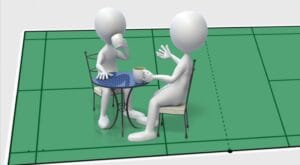
As always, I’m very grateful if you have read this far 🙂
If you’ve had a conversation with a friend, especially about this topic why not share some and send me an email contact@badmintonandy.com
I’d welcome any ideas for topics and conversation starters not just about badminton coaching

